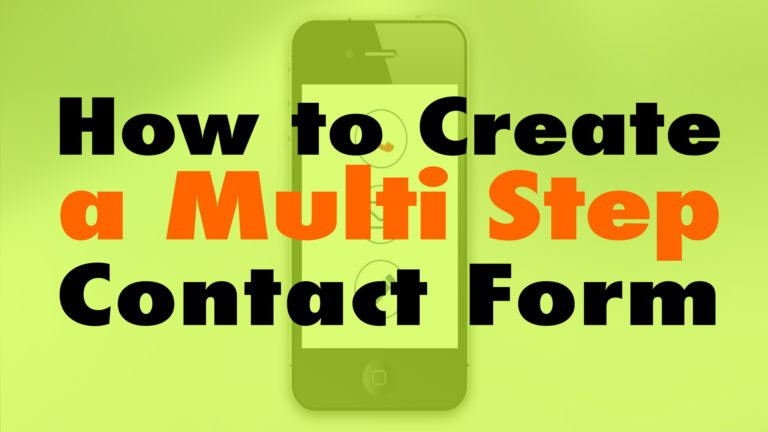Your Brain is Broken! Let’s fix it
- Smartphones addiction. 02:17
- Social media addiction. 04:40
- Simon Sinek’s talk 04:50
Read the full episode transcript below:
00:29 David Blackmon: Hey everybody, welcome to another episode of WP the Podcast brought to you by WP Gears. I’m David Blackmon.
00:37 Tim Strifler: And I’m Tim Strifler.
00:39 David Blackmon: Tim, Your Brain is Broken, let’s fix it.
00:43 Tim Strifler: It is.
00:44 David Blackmon: I don’t know why I like saying that title but you know, today Tim and I wanted to talk about some things that have kind of been in the news a little bit lately. You may have seen some of these videos on social media and stuff and I do think there is some validity to it. What we do these days as opposed to what I did as a kid is totally different and there are studies now, ten, fifteen, twenty years later after all of these things like cell phones and electronic devices and gaming and social media and all of these things and how they contribute to your brain and how it works and how it’s affecting us and stuff. Tim?
01:30 Tim Strifler: Yeah, definitely. So this is part of a series. It’s a four part series we’re doing called Productivity and Life Optimization and so this episode and then the next three after we’re going to talk about similar things that kind of relate to this because I think it’s huge for any individual, but especially small business owners. Whether you’re creating websites for clients or you’re a full time blogger or even if you have a business on the side, these things are going to help you to streamline and double down and focus and so forth. Today, on Your Brain is Broken, if you think about smartphones and social media and the addiction that we have to these things, it’s outrageous so I’m going to touch here on smartphones. I’ll let David talk about our social media addiction.
02:17 Tim Strifler: But it’s so crazy and if you walk into any restaurant or coffee shop, any individual that’s in here by themselves, chances are they’re going to be on their phone. If they’re not constantly on their phone, they’re going to be picking it up every couple of minutes while they wait for their coffee to come up or wait for their food to be delivered, and then even if they are talking to someone else, if they’re with someone you’re going to watch … If you watch someone long enough, they’re going to pull out their smartphone and look at it in the middle of a conversation with someone. The addiction that we have to our smartphones is outrageous.
02:51 Tim Strifler: Now obviously, this isn’t everyone but I think it’s enough of society for it to be looked at and kind of generalized like this and I think everyone kind of has varying degrees of addiction. You might be thinking well, not me and that might be true, but overall I think it’s a problem and I know for me, I look at my smartphone all the time. It’s so much of a problem that Apple on the iPhone has added stats that will show you your habits and how much time total you’re spending on your smartphone and that’s going to show you how many times you’ve picked up your phone and different things like that.
03:27 Tim Strifler: It’s kind of alarming when you look at those stats. You’re like wow, I spent x amount of hours or I picked it up this many times. If you think of that and then look at like productivity, and it’s something that eays away at our productivity. Of course, smartphones can help you in your business with what you can do from the different apps to run your business but at the same time they’re incredibly distracting and we are incredibly addicted.
04:36 David Blackmon: I couldn’t agree more. You know, it’s funny that we brought this topic up and stuff because the other day as I was scrolling through my Facebook feed, which is what I’m going to talk about next, as great as social media is and as connected as it has made all of us on the planet, not just locally in the town where you live, but truly has connected us globally, which I think there’s some good things that come from that, but I also think there’s some down things that come with the social media aspects and stuff.
04:26 David Blackmon: Like I was saying as I was scrolling through my Facebook feed, I came across a video about how addiction to technology and what the impacts that it actually has on the brain and it was by an author and a TED speaker … Is that such a person? Is it a TED speaker or a TED talk?
04:48 Tim Strifler: Yeah. Oh yeah, either one works.
04:50 David Blackmon: A TED talks speaker, how about that? His name was Simon Sinek, you can do a Google search. I mean, I got to tell you when he was talking, it just made a lot of sense and how much these things, smartphones, addiction, social media, and stuff and how much it has impacted our lives and now like I started this podcast off with, over the past twenty years there’s actually studies that they’ve done, that they’ve proven research how these things are true, how it definitely impacts the brain and the way that we think.
05:35 David Blackmon: The older generation jokingly talk about evolution and they’re saying that by the year 2050 the thumb will be so huge because of all the texting and everything it’s done, you know? Who knows, it might happen but social media, Facebook is great, but man it is distracting, you know? I don’t know if we work like we used to work years ago when we didn’t have these distractions. I can guarantee you that social media probably … Man, I would be scared to say how much time I actually spend on social media throughout the day if I track it and guess what? There’s software out there that will track it for you and will let you know exactly how much time you’re spending on these things and I think it may shock you. It may really, really surprise you because it’s constantly open. Mine’s always open. YouTube, Facebook, those two are always open for me.
06:37 Tim Strifler: Yeah.
06:38 David Blackmon: I’m constantly scanning them and pinging between them and stuff. I think we’ve brought to light some of the things that we’re all distracted by social media, we’re addicted to our smartphones and stuff, and I do think that’s valid, you know? What are some of the things that we can do to fix it?
06:58 Tim Strifler: Yeah, we’re going to talk about that in part four of the series, talk about some tips and stuff, but yeah, I was just looking up because I remembered a stat here and I had to find it, but the average attention span of a human according to a study by Microsoft is eight seconds, which is ridiculous. As David was talking, I was finding myself distracted and then it made me think about this, the attention span, and I went and got the stat here. But yeah, it’s crazy and social media and the addiction of smartphones and all of that is all contributing to that, to where you can’t focus on what someone is saying without being distracted.
07:35 Tim Strifler: It’s not just smartphones and social media, your e-mail can also be that way. The fact that we have a thousand browser tabs open at all times looking at different things. We’re trying to multi-task, looking at ten different things at once, and every time we get a new e-mail we go and look to see what the e-mail is, who it’s from, if it’s important. Those all contribute, in my opinion, to our brain being broken and we’re going to talk about, again, some tips in part four of this series that can help because I think it all contributes to a decrease in productivity and getting stuff done for your business and helping move your business forward.
08:11 Tim Strifler: Yeah, hopefully this was helpful. Obviously, we didn’t share all the tips yet but we will get there, stay tuned. Let us know what you think in the comments and share with us kind of what you have experienced and how you’ve discovered how your brain is broken because of these things.
08:28 David Blackmon: Tomorrow we’ve got part two of Productivity and Life Optimization series and it’s going to be … We’re going to be discussing healthy habits that lead to success. Tim, until tomorrow, we’ll see you then.
08:43 Tim Strifler: Take care. Bye bye.

Did you Enjoy this Episode?
- Will you consider sharing it online? Just click one of the share buttons below!
- Will you leave us a review? 🙂
- Have a question, or a topic request? Let us know in the comments below!
Want to Connect with David & Tim?
- David:
- Tim:








